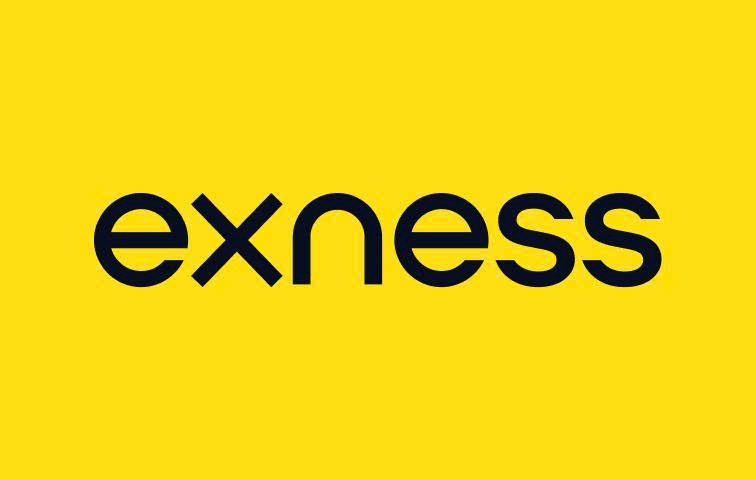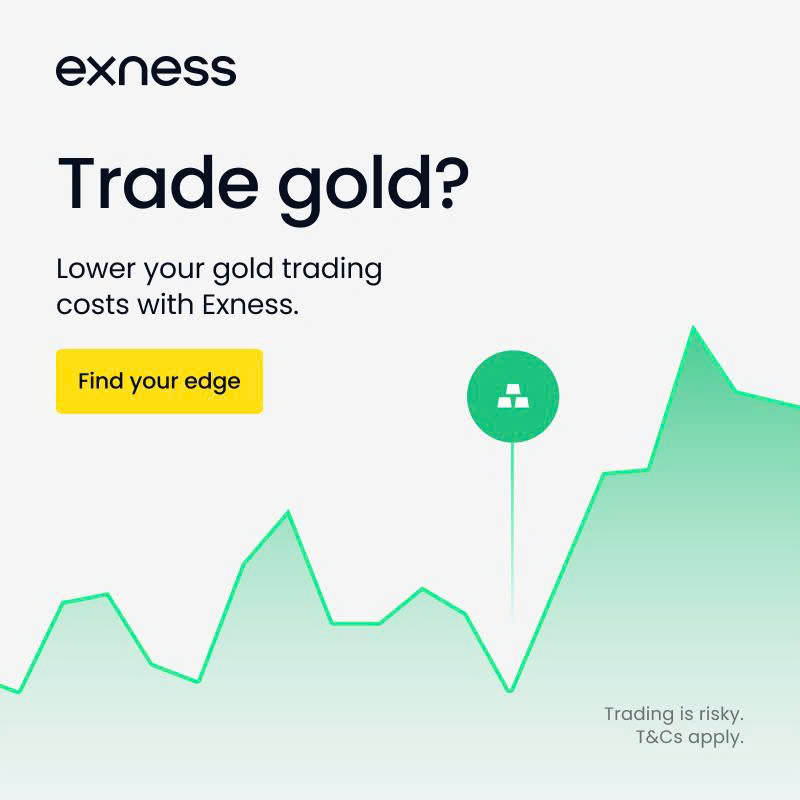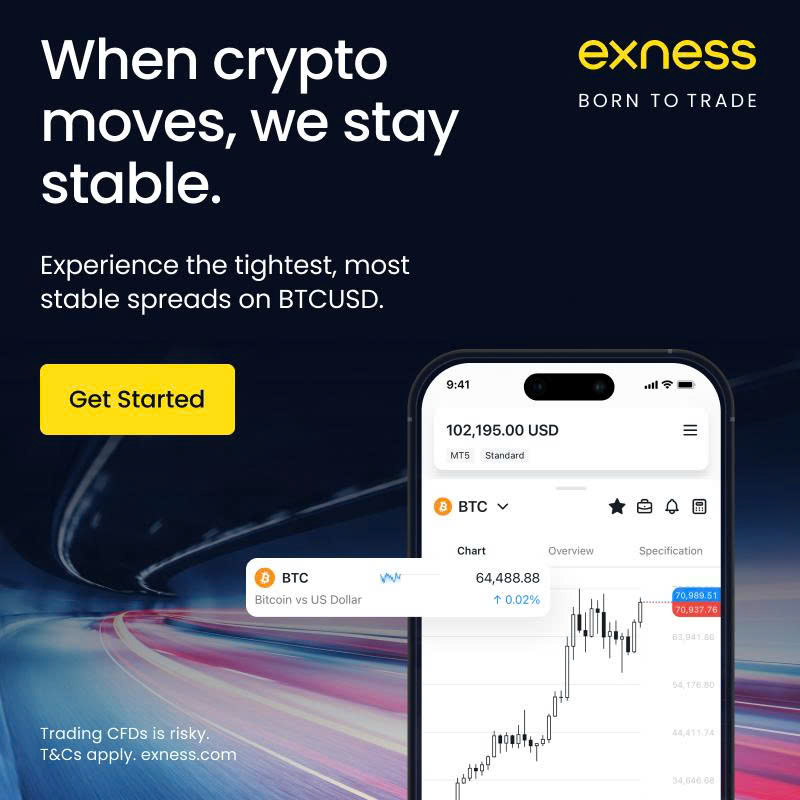
11 minute read
Exness vs Fusion Markets: Which Forex Broker is Best for You in 2025?
from Exness
by Exness Blog
The forex market, with a daily trading volume exceeding $7 trillion, is a dynamic and competitive space where choosing the right broker can significantly impact your trading success. Two brokers frequently discussed among traders are Exness vs Fusion Markets. Both are well-regarded, but they cater to different trading styles and preferences. In this comprehensive Exness vs Fusion Markets comparison, we’ll dive into their features, fees, platforms, regulations, and more to help you decide which broker aligns with your trading goals in 2025.
Whether you’re a beginner exploring forex trading or an experienced trader seeking low-cost solutions, this guide will break down the pros and cons of each broker to simplify your decision-making process. Let’s get started!

💥 Trade with Exness now: Open An Account or Visit Brokers 🏆
Overview of Exness vs Fusion Markets
Before diving into the details, let’s take a quick look at what each broker offers.
Exness: A Global Forex Giant
Founded in 2008 and headquartered in Cyprus, Exness is a leading name in the forex and CFD trading industry. With a monthly trading turnover of over $3 trillion and a global client base, Exness is known for its high leverage (up to 1:2000 or unlimited in some jurisdictions), tight spreads, and a wide range of trading instruments. It caters to both novice and professional traders with a variety of account types and robust educational resources.
Fusion Markets: The Low-Cost Challenger
Established in 2017 in Australia, Fusion Markets is a newer player that has quickly gained traction for its ultra-low-cost trading model. Regulated by the Australian Securities and Investments Commission (ASIC) and the Vanuatu Financial Services Commission (VFSC), Fusion Markets focuses on transparency, tight spreads, and minimal commissions. It’s particularly appealing to cost-conscious traders and those who value simplicity.
While both brokers offer competitive services, their strengths cater to different audiences. Let’s compare them across key criteria to determine which one suits your needs.
1. Regulation and Trustworthiness
Trust is the cornerstone of any broker-client relationship. When depositing your hard-earned money, you need assurance that it’s safe and that the broker operates under strict regulatory oversight.
Exness: Multi-Jurisdictional Regulation
Exness is regulated by multiple authorities, including:
· Financial Conduct Authority (FCA) in the UK (Tier-1)
· Cyprus Securities and Exchange Commission (CySEC) (Tier-1)
· Financial Services Authority (FSA) in Seychelles (Tier-4)
· Financial Sector Conduct Authority (FSCA) in South Africa (Tier-2)
· Other jurisdictions: CBCS, FSC Mauritius, BVI FSC
This extensive regulatory framework ensures Exness adheres to strict standards for client fund segregation, transparency, and operational integrity. It’s also a member of the Financial Commission, providing an additional layer of dispute resolution. However, its FCA and CySEC licenses don’t cover retail clients in some regions, so your experience may vary depending on your location.
Fusion Markets: Reliable but Simpler Oversight
Fusion Markets operates under:
· Australian Securities and Investments Commission (ASIC) (Tier-1)
· Vanuatu Financial Services Commission (VFSC) (Tier-2)
· Financial Services Authority (FSA) in Seychelles (Tier-4)
ASIC is a highly respected regulator, known for its stringent rules, which adds credibility to Fusion Markets. However, VFSC and FSA are considered less rigorous, which may concern traders prioritizing maximum oversight. Fusion Markets also segregates client funds and emphasizes transparency, but its regulatory portfolio is less diverse than Exness’.
Winner: Exness, due to its broader range of regulatory licenses, particularly from Tier-1 authorities like FCA and CySEC.
2. Trading Platforms
The trading platform is your gateway to the markets, so it’s crucial to choose a broker that offers reliable, user-friendly options.
Exness: Versatile and Proprietary Options
Exness supports a variety of platforms to cater to different trading styles:
· MetaTrader 4 (MT4) and MetaTrader 5 (MT5): Industry-standard platforms known for their advanced charting, automated trading (Expert Advisors), and customization.
· Exness Terminal: A proprietary web-based platform designed for simplicity and speed, ideal for beginners.
· Exness Trade App: A mobile app offering full trading functionality, real-time market data, and a user-friendly interface.
· MetaTrader WebTerminal and Mobile: For traders who prefer browser-based or mobile trading.
Exness’ proprietary platforms, combined with MT4 and MT5, make it a versatile choice for traders of all levels.
Fusion Markets: Diverse Third-Party Platforms
Fusion Markets also offers a strong lineup of platforms:
· MetaTrader 4 (MT4) and MetaTrader 5 (MT5): Available with a 30-day demo limit, these platforms are ideal for technical traders.
· cTrader: A modern, intuitive platform favored by scalpers and day traders for its fast execution and advanced charting.
· TradingView: A popular platform for its clean interface and social trading features, appealing to traders who value community insights.
Fusion Markets’ inclusion of cTrader and TradingView sets it apart, especially for traders seeking alternatives to MetaTrader. However, the 30-day demo limit on MT4 and MT5 may be a drawback for some.
Winner: Tie. Exness excels with its proprietary platforms, while Fusion Markets offers more third-party options like cTrader and TradingView.
3. Fees and Spreads
Trading costs can significantly impact your profitability, so let’s compare the fee structures of Exness vs Fusion Markets.
Exness: Competitive Variable Spreads
Exness offers variable spreads, which can be as low as 0.0 pips on its Raw Spread and Zero accounts. Its fee structure varies by account type:
· Standard Account: No commission, spreads start at 0.3 pips.
· Raw Spread Account: Commission of $3.5 per lot per side, spreads from 0.0 pips.
· Zero Account: Commission of $0.05 per lot per side, spreads from 0.0 pips.
· Pro Account: Low spreads (from 0.1 pips) with no commission.
Exness is known for its low-cost trading, especially on its Raw Spread and Zero accounts, making it ideal for high-volume traders and scalpers.
Fusion Markets: Ultra-Low-Cost Model
Fusion Markets prides itself on being one of the lowest-cost brokers in the industry. It offers fixed spreads on its Zero account and competitive spreads on its Classic account:
· Zero Account: Spreads from 0.0 pips, commission of $4.5 AUD per lot (round-turn).
· Classic Account: Commission-free, spreads start at 0.8 pips.
Fusion Markets’ low commission rates and tight spreads make it a favorite among cost-conscious traders. Additionally, it waives fees on Visa, MasterCard, and PayPal deposits, further reducing costs.
Winner: Fusion Markets, for its overall lower trading costs, especially on the Zero account, and no deposit fees.4. Account Types
Both brokers offer account types tailored to different trading styles, but their approaches differ.
Exness: Flexible and Diverse Options
Exness provides five account types:
· Standard: No commission, ideal for beginners.
· Standard Cent: Designed for micro-trading with smaller lot sizes.
· Pro: Low spreads, suited for experienced traders.
· Raw Spread: Tight spreads with a fixed commission, ideal for scalpers.
· Zero: Near-zero spreads with a low commission, perfect for high-volume traders.
Exness’ variety ensures there’s an option for every trader, from beginners to professionals. The minimum deposit is as low as $1, depending on the payment method.
Fusion Markets: Simple and Streamlined
Fusion Markets keeps it simple with two account types:
· Classic Account: Commission-free, suitable for beginners or low-volume traders.
· Zero Account: Low spreads with a commission, designed for scalpers and high-volume traders.
Fusion Markets also has a $1 minimum deposit, making it accessible to all traders. However, its limited account types may not suit traders seeking more specialized options.
Winner: Exness, for its broader range of account types catering to diverse trading needs.

💥 Trade with Exness now: Open An Account or Visit Brokers 🏆
5. Leverage
Leverage can amplify both profits and losses, so it’s a critical factor to consider.
Exness: High Leverage Options
Exness is known for its high leverage, offering up to 1:2000 or unlimited leverage in some jurisdictions (e.g., Seychelles). However, leverage is capped at 1:30 for clients under FCA and CySEC regulations due to regional restrictions. This makes Exness a top choice for traders comfortable with high-risk strategies.
Fusion Markets: Flexible but Lower Leverage
Fusion Markets offers leverage up to 1:500 under VFSC regulation, but it’s capped at 1:30 for ASIC-regulated clients. While this is sufficient for most traders, it’s significantly lower than Exness’ offerings in less-regulated jurisdictions.
Winner: Exness, for its higher leverage options, especially for traders in less-regulated regions.
6. Tradable Assets
A diverse range of trading instruments allows you to explore multiple markets and diversify your portfolio.
Exness: Extensive Asset Selection
Exness offers over 100 forex pairs, along with:
· Cryptocurrencies (34 pairs)
· Stocks
· Indices
· Commodities (gold, silver, oil)
· Energies
· Metals
This extensive selection makes Exness a versatile choice for traders looking to explore beyond forex.
Fusion Markets: Solid but Limited
Fusion Markets provides access to:
· 81 forex pairs
· Cryptocurrencies (13 pairs)
· Stocks
· Indices
· Commodities
· Energies
· Metals
While Fusion Markets offers a respectable range, it falls short of Exness in terms of the number of forex pairs and cryptocurrencies.
Winner: Exness, for its broader range of tradable assets, particularly in forex and cryptocurrencies.
7. Customer Support
Reliable customer support is essential, especially for resolving urgent trading issues.
Exness: 24/7 Multilingual Support
Exness offers 24/7 customer support in multiple languages, including English, Thai, and others, via:
· Live chat
· Phone
· Social media
Exness also provides dedicated support for regions like Thailand, with 24/7 Thai-language assistance, making it highly accessible for international traders.
Fusion Markets: Responsive but Limited
Fusion Markets offers 24/7 customer support through:
· Live chat
· Phone
While responsive and friendly, Fusion Markets’ support is primarily English-focused, which may be a limitation for non-English-speaking traders.
Winner: Exness, for its multilingual, 24/7 support and regional accessibility.
8. Educational Resources
Education is critical for traders, especially beginners, to build knowledge and confidence.
Exness: Comprehensive Learning Hub
Exness excels with its Exness Academy, offering:
· Video lessons and webinars on forex basics, technical analysis, and risk management
· Trading signals from Trading Central
· Sentiment indicators for market trends
· Economic calendar for market-moving events
These resources are beginner-friendly and valuable for intermediate traders.
Fusion Markets: Solid but Less Extensive
Fusion Markets provides:
· Webinars
· Articles and guides on practical trading strategies
· Access to third-party platforms for self-directed learning
While useful, Fusion Markets’ educational offerings are less comprehensive than Exness’.
Winner: Exness, for its robust and beginner-friendly educational resources.
9. Deposit and Withdrawal Processes
Fast and cost-effective deposit and withdrawal processes are crucial for a seamless trading experience.
Exness: Flexible and Fast
Exness supports a wide range of payment methods, including:
· VISA, MasterCard
· Bitcoin, Tether (USDT)
· Skrill, Neteller
· Local bank transfers and more
Exness processes withdrawals within 24 hours and does not charge withdrawal fees, making it highly convenient.
Fusion Markets: Free and Efficient
Fusion Markets also offers fee-free withdrawals and supports:
· VISA, MasterCard
· PayPal
· Skrill, Neteller
· Local bank transfers
Fusion Markets is praised for its fast withdrawal processing, often within 24 hours, and its fee-free deposit options.
Winner: Fusion Markets, for its slightly better deposit and withdrawal processes, particularly with PayPal support.
10. Copy Trading and Additional Features
Copy trading is a valuable feature for beginners or those with limited time to trade actively.
Exness: Social Trading
Exness offers social trading, allowing users to copy the trades of experienced traders. This feature is integrated into its platforms, making it accessible and user-friendly.
Fusion Markets: Proprietary Copy Trading
Fusion Markets provides a proprietary copy trading platform, which is ideal for beginners seeking a personalized experience. It also offers subsidized VPS hosting for automated trading strategies.
Winner: Tie. Both brokers offer strong copy trading options, with Fusion Markets’ proprietary platform being a unique advantage.
11. Overall Trading Experience
Exness: Versatile and Feature-Rich
Exness stands out for its:
· High leverage (up to 1:2000 or unlimited)
· Extensive regulatory oversight
· Wide range of account types and trading instruments
· Comprehensive educational resources
· 24/7 multilingual support
It’s ideal for traders seeking flexibility, advanced tools, and a robust trading environment.
Fusion Markets: Low-Cost and Streamlined
Fusion Markets excels in:
· Ultra-low trading costs
· Diverse third-party platforms (cTrader, TradingView)
· Fast and fee-free withdrawals
· Simple, transparent commission structure
It’s perfect for cost-conscious traders who value simplicity and efficiency.
Which Broker Should You Choose?
Choosing between Exness vs Fusion Markets depends on your trading goals and preferences:
· Choose Exness if:
· You want high leverage (up to 1:2000 or unlimited).
· You need a wide range of account types and trading instruments.
· You value comprehensive educational resources and multilingual support.
· You prefer a broker with extensive regulatory oversight.
· Choose Fusion Markets if:
· You prioritize low trading costs and tight spreads.
· You want access to platforms like cTrader and TradingView.
· You prefer a simple, transparent commission structure.
· You’re a cost-conscious trader or scalper.
Both brokers are trustworthy and regulated, but Exness is better for traders seeking versatility and high leverage, while Fusion Markets is the go-to choice for those prioritizing low costs and simplicity.
Final Thoughts
In the Exness vs Fusion Markets debate, there’s no one-size-fits-all answer. Exness offers a feature-rich, flexible trading experience with robust regulation and educational tools, making it ideal for beginners and professionals alike. Fusion Markets, on the other hand, shines with its ultra-low-cost model and user-friendly platforms, appealing to cost-conscious traders and scalpers.
Before deciding, consider testing both brokers with their demo accounts to see which platform aligns with your trading style. Whichever you choose, both Exness vs Fusion Markets are reliable options in the competitive world of forex trading in 2025.
💥 Note: To enjoy the benefits of the partner code, such as trading fee rebates, you need to register with Exness through this link: Open An Account or Visit Brokers 🏆
Read more:

